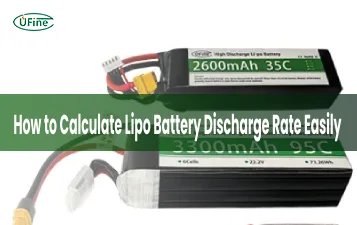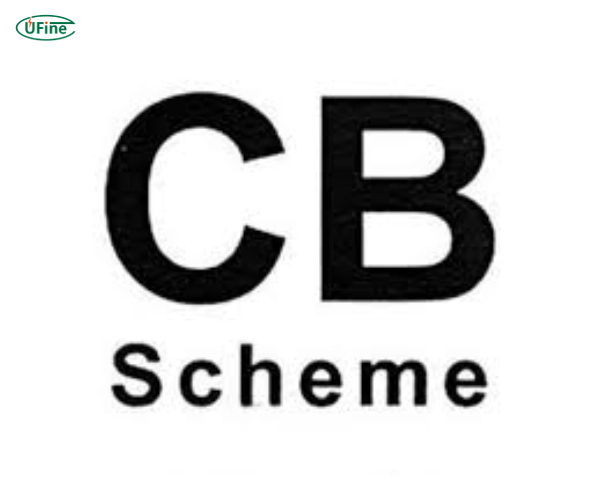Have you ever wondered about the CB Certification for lithium batteries? This certification ensures quality and safety. Let’s explore CB Certification, why it’s crucial for lithium batteries, how manufacturers obtain it, and its advantages.
Part 1. What is CB certification?
CB Certification, short for Certification Body Certification, is an internationally recognized standard that ensures products meet specific safety and quality requirements. Accredited bodies grant this certification and signify compliance with relevant standards and regulations. It covers various product categories, including electrical and electronic devices. It serves as a mark of trust for consumers and businesses alike. Obtaining CB Certification involves rigorous testing and evaluation processes conducted by authorized laboratories, resulting in increased product performance and confidence in reliability.
Part 2. Importance of CB certification for lithium batteries
1. Safety and Quality Assurance
- Compliance with Standards: CB Certification guarantees that lithium batteries adhere to stringent international safety and quality benchmarks, ensuring they are safe for use in various applications.
- Consumer Trust: Manufacturers, distributors, and end-users rely on CB Certification to verify that lithium batteries meet established safety and performance criteria, instilling confidence in their reliability and reducing the risk of accidents or malfunctions.
2. Global Market Access
- International Compliance: CB Certification enables lithium battery manufacturers to demonstrate compliance with global regulations and standards, facilitating market entry into multiple countries without the need for additional testing or certification.
- Enhanced Trade Opportunities: With CB Certification, lithium battery products gain broader acceptance in international markets, streamlining the export process and minimizing trade barriers, thus expanding manufacturing business opportunities.
- Consumer Confidence: The CB Certification mark symbolizes quality and safety assurance for consumers worldwide, enhancing product reputation and fostering trust in lithium batteries, which drives market demand and competitiveness.
Part 3. CB Certification process for lithium batteries
1. Application Process
- Initial Steps: Manufacturers must first use a recognized Certification Body (CB) to apply for CB Certification for lithium batteries. This involves filling out detailed forms and providing essential information about the product.
- Required Documentation: Applicants must provide technical documentation, including design specifications, safety data sheets, and manufacturing processes. Additional information, such as test reports from preliminary evaluations, may also be necessary to support the application.
2. Testing and Evaluation
- Testing Procedures: The lithium batteries undergo rigorous testing once the application is accepted. Accredited laboratories perform these tests to ensure the batteries meet international safety and performance standards.
Types of Tests: The testing process includes a variety of assessments:
- Electrical Tests: Evaluate the battery’s electrical characteristics, such as voltage, capacity, and internal resistance.
- Mechanical Tests: Assess the battery’s durability under physical stress, including shock, vibration, and crush tests.
- Environmental Tests: Determine how the battery performs under extreme conditions, such as high and low temperatures, humidity, and thermal cycling.
3. Certification Issuance
- Criteria for Certification: To grant CB Certification, manufacturers must ensure that the batteries pass all required tests and comply with relevant standards. The Certification Body reviews the test results and the submitted documentation to ensure compliance.
- Issuance and Validity: If the batteries meet all criteria, the CB issues a CB Test Certificate, which verifies that the product complies with international standards. The certification is typically valid for a specific period, often three to five years, after which manufacturers must apply for renewal. The renewal process may involve re-evaluation and additional testing to ensure ongoing compliance with updated standards.
Part 4. Benefits of CB certification for lithium battery manufacturers
Enhanced Market Access
- Global Acceptance: CB Certification allows manufacturers to sell lithium batteries in numerous countries without needing additional local certifications. This opens doors to international markets and expands the customer base.
- Streamlined Export Process: With CB Certification, the export process becomes more straightforward and faster. Customs and regulatory bodies worldwide more readily accept products with CB Certification.
Increased Consumer Confidence
- Quality Assurance: The CB Certification mark symbolizes quality and safety. Consumers trust that certified products meet high standards, which boosts their confidence in purchasing lithium batteries.
- Brand Reputation: Manufacturers with CB Certification enjoy a better reputation. The certification signals consumers and partners that the company prioritizes safety and reliability.
Competitive Advantage
- Market Differentiation: CB Certification helps products stand out in a crowded market. Certified batteries are more attractive to buyers, giving manufacturers a competitive edge.
- Preferred by Distributors: Distributors and retailers prefer carrying certified products. CB Certification can lead to more business partnerships and better shelf placement in stores.
Cost Efficiency
- Reduced Redundancy: CB Certification minimizes the need for multiple tests and certifications in different countries. This reduces costs and administrative burdens for manufacturers.
- Lower Risk of Product Recalls: Products that meet stringent international standards are less likely to face recalls. This saves manufacturers from costly recalls and damage to their reputations.
Compliance and Safety
- Regulatory Compliance: CB Certification ensures that lithium batteries comply with international regulations. This helps manufacturers avoid legal issues and fines related to non-compliance.
- Enhanced Safety: The rigorous testing process for CB Certification ensures that batteries are safe to use. This reduces the risk of accidents, improving overall safety for users.
Part 5. What products does the CB Scheme cover?
Electrical and Electronic Equipment
- Household Appliances: The CB Scheme covers various household appliances, including refrigerators, washing machines, vacuum cleaners, and microwaves. These products must meet international safety standards to ensure they are safe for everyday use.
- Consumer Electronics: Items such as televisions, audio equipment, and personal computers fall under the CB Scheme. Testing laboratories examine these devices for electrical safety, electromagnetic compatibility, and performance.
IT and Office Equipment
- Computers and Peripherals: This includes desktops, laptops, printers, and scanners. These products undergo rigorous testing to ensure they are safe, reliable, and energy-efficient.
- Office Machines: Photocopiers, fax machines, and shredders are also covered. The certification ensures these machines operate safely and efficiently in office environments.
Lighting Equipment
- Lamps and Luminaires: All types of lighting equipment, from household lamps to industrial lighting systems, are included—the CB Certification checks for electrical safety, energy efficiency, and performance.
- LED Lighting: Testing authorities evaluate LED bulbs and fixtures to meet stringent safety and quality standards. This ensures they provide safe, long-lasting, and energy-efficient lighting solutions.
Medical Devices
- Diagnostic Equipment: Devices like X-ray machines, MRI scanners, and ultrasound equipment are part of the CB Scheme. Testing authorities conduct tests on these products to ensure electrical safety and reliability.
- Therapeutic Devices: These include products such as infusion pumps and surgical lasers. Certification ensures these devices are safe for both patients and medical professionals.
Industrial Equipment
- Automation Systems: Equipment used in industrial automation, including controllers, sensors, and drives, are covered. The CB Certification ensures these products operate safely and reliably under various conditions.
- Power Tools: Include industrial-grade tools such as drills, saws, and grinders. Testing authorities assess these tools for safety, durability, and performance.
- Solar Panels: Testing authorities conduct tests on photovoltaic modules and inverters under the CB Scheme. This ensures they meet international standards for safety and performance.
- Wind Turbines: Small and medium-sized wind turbines are also covered. Certification ensures they are safe and efficient for generating renewable energy.
Batteries and Chargers
- Lithium Batteries: Includes batteries used in consumer electronics, electric vehicles, and energy storage systems—the CB Certification tests for safety, performance, and reliability.
- Battery Chargers: Chargers for various types of batteries, including those for consumer electronics and industrial applications, are included. Certification ensures they operate safely and efficiently.
Part 6. FAQs
-
What does CB stand for in CB Certification?
CB stands for Certification Body. It’s part of the IECEE (IEC System for Conformity Testing and Certification of Electrical and Electronic Components, Equipment, and Products). This global program helps ensure products meet international safety and quality standards. -
How long does the CB Certification process take?
The process usually takes several weeks to a few months. The time depends on the product’s complexity and the testing procedures. Manufacturers should plan for timely market entry. -
Can CB Certification be transferred between countries?
CB Certification allows more effortless transfer of product certifications between member countries of the IECEE CB Scheme. This helps in simplifying international trade. -
Is CB Certification mandatory?
While not legally mandatory, experts highly recommend CB Certification. It can give manufacturers a competitive edge and build trust with customers and business partners. -
How does CB Certification differ from CE Marking?
CB Certification ensures conformity with IEC standards and is recognized internationally. CE Marking shows compliance with European Union safety, health, and environmental requirements. They serve different regulatory frameworks.
Related Tags:
More Articles

LiPo Battery Discharge Rate Guide & Calculation Tips
Understand LiPo battery discharge rates, C-ratings, and how to calculate max current. Essential guide for RC, drones, and electronics users.
High‑Capacity 3S LiPo Batteries: 5000 mAh vs. 10000 mAh
Compare 3S LiPo 5000mAh vs 10000mAh batteries by weight, power, and use. Find the best fit for your drone, RC car, or boat setup.
Top 5 Applications for Small 3S LiPo Batteries
Small 3S LiPo batteries power drones, RC gear, wearables, and robotics with high energy and low weight. Making them ideal for compact electronics projects.
Building and Charging Your Own 3S LiPo Pack: A Step‑by‑Step Guide
Learn how to build, balance, and charge a 3S LiPo battery pack safely at home with this complete DIY guide for hobbyists and beginners.
How to Choose the Right LiPo Battery Plug Type?
Discover the best LiPo battery plug types, how to choose them, and expert tips for safe usage, soldering, and maintenance.




